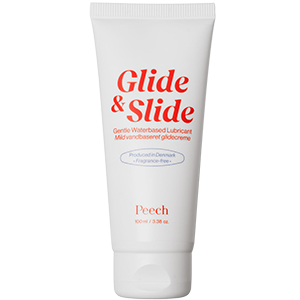What is the orgasm gap?
You may have heard the term orgasm gap, but what exactly is it and what can you do to close the gap? Read more in our article here!
The orgasm gap
The term "orgasm gap" describes how some genders orgasm more often than others. In modern debate, the words "men" and "women" are commonly used, but the orgasm gap can apply to others who don't identify with those labels. Often, the partner who experiences fewer orgasms than their counterpart is a person with a vulva. In the Project SEXUS study conducted in Denmark, you can find an overview of how often people do not experience orgasm when they have had sex with others.
For people with a penis, 13% "sometimes" do not reach orgasm, while 5% "often" do not and 2 % "every time" do not reach orgasm.
For people with a vulva, on the other hand, 24% "sometimes" do not experience orgasm, while a total of 21% "often" or "every time" do not experience orgasm.
Other studies show how people with vulvas generally find masturbation alone more pleasurable than sex, while the opposite is true for people with penises.
So, based on gender identity, there is clearly a difference in how much pleasure you get from sex with others as opposed to alone. But why does this difference exist?
Why does the orgasm gap exist?
There are many reasons why the orgasm gap still exists. The orgasm of people with a vulva have historically been understudied and not really understood. Additionally, a vulva orgasm is closely linked to the clitoris, which is also a very understudied area. This has all contributed to the impression that the orgasm of people with vulva is "difficult" or "complicated".
The use of these terms to describe people with vulvas orgasm may also be related to the fact that many people with a vulva find that it takes more than penetration to achieve orgasm. So, if you don't have a technique to stimulate the clitoris during sex, or have a vibrator of some kind, it's not at all uncommon for penetrative sex not to result in orgasm. The clitoris is the most sensitive area of the vulva and vagina, where over 7000 nerve endings are gathered, so it makes sense that the clitoris should be involved for orgasm.
It can therefore be a great advantage to buy a clitoris vibrator if you don't experience orgasm from penetrative sex alone. You can read our full guide to choosing the right clitoral stimulator here.
The orgasm gap can also be due to our perception of sex
It could also be due to the fact that for a long time, sex has been perceived in a very simple way; as penetrative sex. And when penetrative sex is not enough for orgasm, it's only natural that people with vulvas experience far fewer orgasms than people with penises.
But there are many other ways to experience pleasure together, and many other different ways to have sex. These include oral sex, where you can read a guide to oral sex for people with vulvas here. It can also be finger sex, which you can read a guide to here.
Sex is still hard to talk about
Even though the perception of sex and sex toys is very different from the last century, many people still find it very difficult to talk about pleasure with others. This can be due to a fear of upsetting your partner(s) if you don't reach orgasm. Or it could be a sense of shame because it can be hard to rest in the fact that pleasure is a positive and natural part of life.
Whatever the reason, it can be difficult but nonetheless important to talk about sex with your partner(s). When you talk openly about sex and pleasure, your partner(s) are more likely to do what you find most pleasurable. In this article, we've collected some situations that can arise in relationships and provided answers on how to talk to your partner(s) about it. For example, I can't get wet or I come too fast. You can also read our guide to better communication before and during sex here and get more tips on how to start the conversation.
Read also: Guide to masturbation for people with a vulva
Read also: Sex toy guide for beginners





